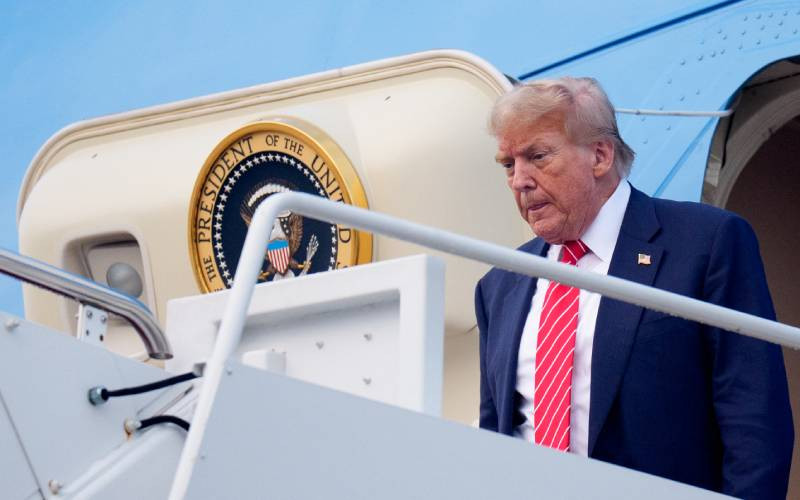Gavi 'disappointed' as US ends vaccine support

The head of Gavi said Thursday the organisation which vaccinates children in the world's poorest countries was "disappointed" after Washington announced it was pulling funding in an incendiary video questioning its safety standards.
A Brussels summit held by the group to raise money on Wednesday night, was overshadowed by a video message sent by US Health Secretary Robert F. Kennedy Jr, who raised sweeping vaccine safety doubts without evidence and announced an end to Washington's support.
"We were disappointed to see the video," Gavi CEO Sania Nishtar told AFP in a phone interview.
"Of course, we disagree with many of the things that were narrated in the video. It's unfortunate but we are hopeful of a positive relationship with the United States. We will continue to engage them."
The United States's funding withdrawal comes as Gavi and the United Nations reported in April that outbreaks of vaccine-preventable diseases such as measles, meningitis and yellow fever, are on the rise globally amid misinformation and cuts to international aid.
Gavi secured more than $9 billion (7.7 billion euros) in pledges on Wednesday, short of the $11.9 billion the group said it needed to fund its operations for the next five years, when it hopes "to protect 500 million children from preventable disease".
Yet, Nishtar said that was a "positive result" at a time when many donor nations had other priorities, including ramping-up defence spending, and as international aid as a whole is in decline.
Despite Washington pulling support Gavi was "in a very good position", she added. The United States currently contributes around 13 percent of the group's core budget.
On Wednesday, Kennedy -- who spent decades spreading vaccine misinformation before becoming President Donald Trump's top health official -- said the United States "won't contribute more" until Gavi re-earns "public trust".
In a blistering attack he accused the group of pushing unsafe vaccines in the developing world.
"When vaccine safety issues have come before Gavi, Gavi has treated them not as a patient health problem, but as a public relations problem," Kennedy said in a clip that was played at the summit.
"In its zeal to promote universal vaccination, it has neglected the key issue of vaccine safety," he added.
He raised concerns in particular over a vaccine against diphtheria, tetanus and whooping cough, known as DTPw, which is widely used in lower-income nations.
Gavi replied that the DTPw vaccine is used in developing nations as the disease burden there was much higher than in high-income parts of the world.
The shot is more potent, with longer-lasting effects than the alternative used in the West, it added.
Stay informed. Subscribe to our newsletter
"In places where access to hospitals is limited and disease risk is high, the stronger protection from DTPw against these life-threatening diseases far outweighs the temporary side-effects this vaccine may cause," Gavi said.
Nishtar also questioned the idea that her organisation had to regain public trust.
"We have so much demand for vaccines from the countries that we support, that we are unable to fulfil them. When you go to the field, you see women lining up to get the children vaccinated," she said.
"There's immense trust already there," she added
European countries and the European Union jointly pledged more than two billion euros to Gavi, according to Brussels.
Another $1.6 billion was offered by the Gates Foundation of Microsoft co-founder Bill Gates.












